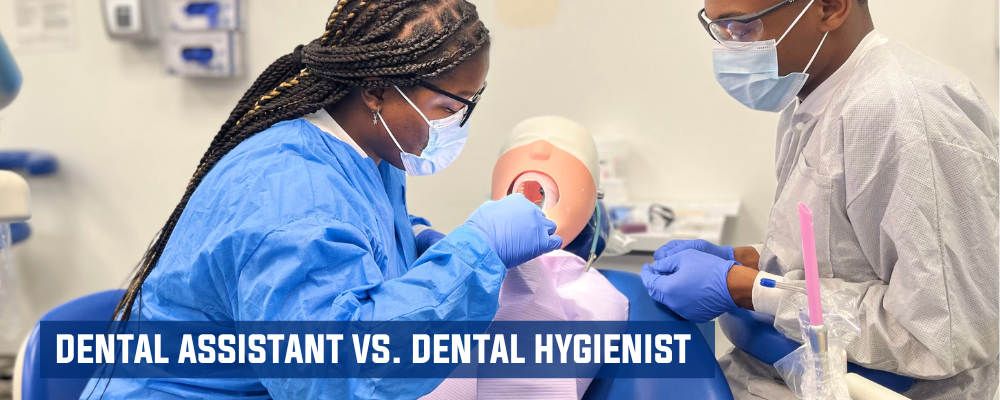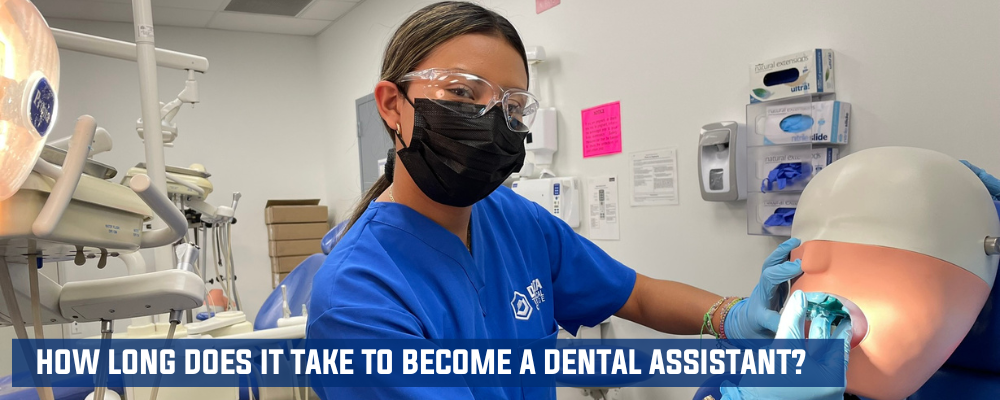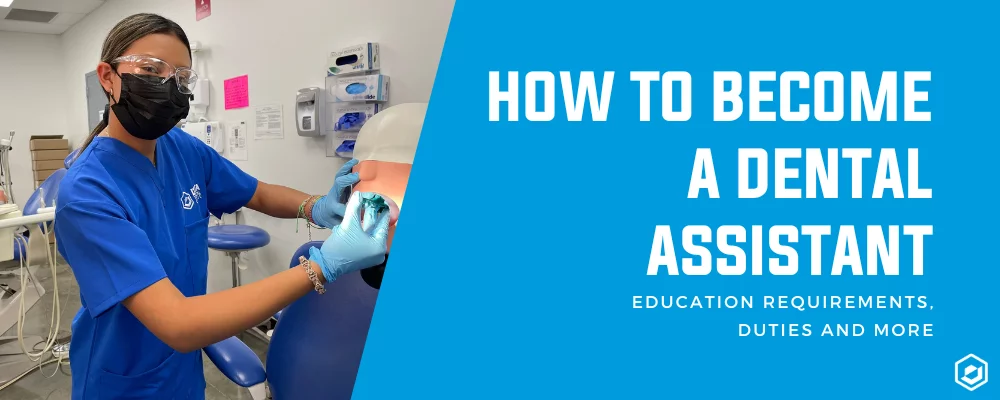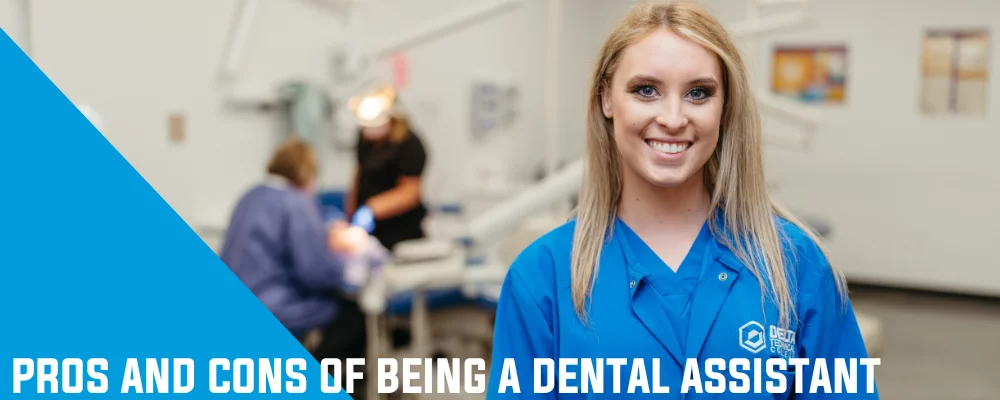What’s the difference between a dental hygienist and a dental assistant? Broadly speaking, a dental assistant provides aid directly to dentists during routine procedures and may be authorized to take x-rays or perform small procedures under supervision.
In contrast, a dental hygienist works directly with patients performing teeth cleanings and oral examinations with minimal or no supervision.
In this article, we’ll take a much closer look at the key differences and similarities between these two professions and help you determine which might be the right career path for you!
Dental Hygienist vs Dental Assistant Comparison Chart
| Dental Assistant | Dental Hygienist | |
| Common Duties | Assisting dentists, preparing patients for procedures | Cleaning teeth, oral examinations, patient hygiene education |
| Entry Level Education | Certificate or diploma | College or advanced degree |
| Projected Job Growth | 8% through 2033 | 9% through 2033 |
| Certification Required | Varies by state | Varies by state |
| Where they work | Dental offices (90%) | Dental offices (94%) |
Typical Job Duties of Dental Assistants and Dental Hygienists
While dental assistants and dental hygienists both play important support roles within a dental office, the scope of their duties varies significantly.
Dental assistants work closely with the dentist to aid in routine procedures. They may be asked to:
- Take dental impressions
- Prep patients for procedures
- Help with suctioning and rinsing during dental procedures
- Take patient x-rays (depending on certification requirements)
- Escort patients from the waiting area to the dentist’s chair
The scope of what dental assistants do on a daily basis is wide ranging and requires great multitasking and organizational skills. Job duties will vary based on the dental practice and state regulations.
Dental hygienists, on the other hand, work independently with patients to perform several duties, including:
- Routine cleanings
- Examinations for oral cancer
- Gum treatments
- And more
Hygienists may also refer patients out to periodontal specialists for advanced gum surgery or other procedures.
Interested in Learning More About Dental Assisting?
Fill out the form below to receive info about our career training programs.
Dental Assistant vs Dental Hygienist Salary Comparison
The median annual salary for dental assistants was $46,540 as of May 2023. The highest 10 percent earned more than $61,060.
Although dental hygienists earn a higher median annual salary ($87,530 as of May 2023), the job requires more training, meaning a longer time in school which typically results in higher tuition costs. Salaries for both dental hygienist and dental assistants will vary based on several factors including location, employer, and level of experience.
Where do Dental Assistants Work?
According to the Bureau of Labor Statistics, 90 percent of dental assistants work in a dental office. Types of dental offices include:
- Dental Clinics
- Oral Surgery Centers
- Pediatric Dentistry
- Reconstructive Dentistry
- Cosmetic Dentistry
For dental hygienists, 94 percent work in a dental office of some kind, including:
- Family dentistry
- General Dentistry
- Cosmetic Dentistry
A smaller percentage of both dental assistants and dental hygienists work in government or in the offices of physicians.
How to Become a Dental Assistant or Dental Hygienist
Many dental assistants complete their training at a vocational or trade school. Delta Technical College (DTC) offers a 9-month Dental Assisting Program that provides you with hands-on training in both clinical and administrative tasks. You’ll learn how to:
- Assist in laboratory procedures, x-ray procedures, CPR and patient assessments
- Perform sterilization and infection control techniques, clinical procedures and equipment maintenance
- Effectively handle administrative office procedures, including electronic record keeping, keyboarding, billing, coding, insurance claims and scheduling
- And more!
To learn more, check out How Long Does it Take to Become a Dental Assistant?
The training required to become a dental hygienist is different from a dental assistant. Most dental hygienists have earned an associate’s or a bachelor’s degree in dental hygiene. These types of training programs typically take about 3 years to complete, compared to dental assistant training, which typically takes one year or less. All states require dental hygienists to be licensed, but requirements vary by state.
Dental Assistant or Dental Hygienist, Which is Right for You?
Choosing your career path is a big decision. If you enjoy working with people and have an interest in a career field where you can make a positive impact on people’s oral health, becoming a dental assistant might be a great option for you!
Becoming a dental assistant can offer a faster path to a new career that doesn’t involve years of schooling or potentially taking on higher student loan debt, compared to training to become a dental hygienist.
However, if you have the time and resources to attend a multi-year college program, dental hygiene could be a worthwhile career choice.
Start Your Dental Assistant Career at Delta Technical College
Think dental assisting is the right career path for you?
Delta Technical College (DTC)’s Dental Assisting Program gives you the hands-on dental assistant training you need to pursue a career as a dental assistant.
Take the next step! Fill out the form to request more information about the dental assistant training program or schedule a campus tour!
Sources
- https://www.bls.gov/ooh/healthcare/dental-hygienists.htm#tab-6
- https://www.bls.gov/ooh/healthcare/dental-assistants.htm#tab-3
- https://www.bls.gov/ooh/healthcare/dental-hygienists.htm#tab-5
- https://www.bls.gov/ooh/healthcare/dental-hygienists.htm#tab-3
- https://www.bls.gov/ooh/healthcare/dental-hygienists.htm#tab-4



